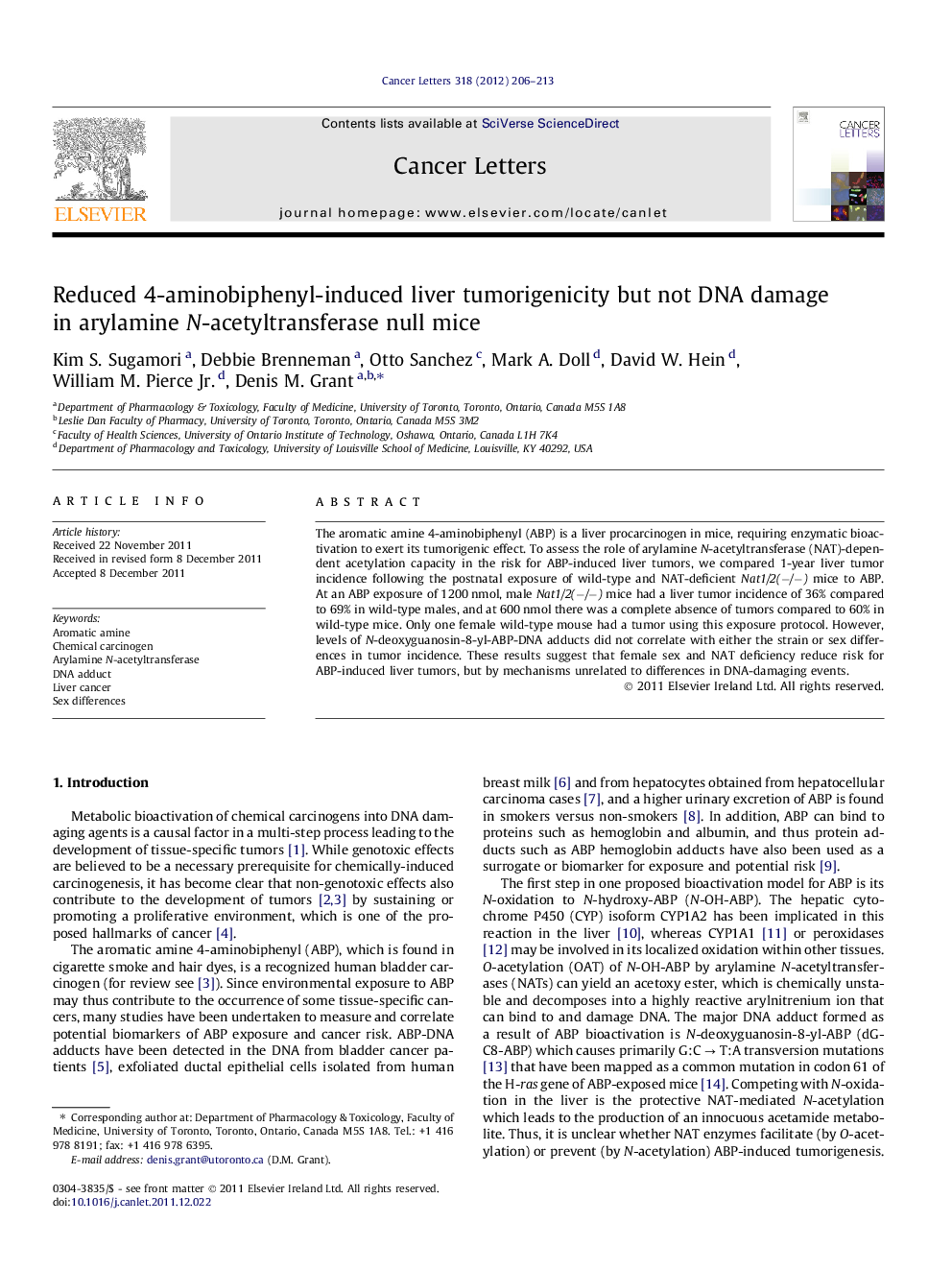| Article ID | Journal | Published Year | Pages | File Type |
|---|---|---|---|---|
| 2113399 | Cancer Letters | 2012 | 8 Pages |
The aromatic amine 4-aminobiphenyl (ABP) is a liver procarcinogen in mice, requiring enzymatic bioactivation to exert its tumorigenic effect. To assess the role of arylamine N-acetyltransferase (NAT)-dependent acetylation capacity in the risk for ABP-induced liver tumors, we compared 1-year liver tumor incidence following the postnatal exposure of wild-type and NAT-deficient Nat1/2(−/−) mice to ABP. At an ABP exposure of 1200 nmol, male Nat1/2(−/−) mice had a liver tumor incidence of 36% compared to 69% in wild-type males, and at 600 nmol there was a complete absence of tumors compared to 60% in wild-type mice. Only one female wild-type mouse had a tumor using this exposure protocol. However, levels of N-deoxyguanosin-8-yl-ABP-DNA adducts did not correlate with either the strain or sex differences in tumor incidence. These results suggest that female sex and NAT deficiency reduce risk for ABP-induced liver tumors, but by mechanisms unrelated to differences in DNA-damaging events.
